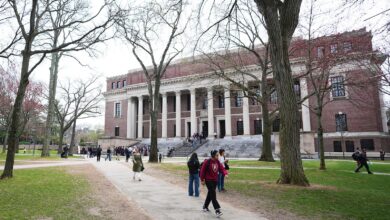After the first round of the parliamentary elections I asked my friend, who is usually referred to in the press as the great thinker, if he applied his right and duty and participated in the elections.
I was surprised to hear him saying that he did not and will not participate in any elections because he does not believe in democracy.
I thought at first that he was joking, for I have known him for more than 40 years and we have participated in many conferences and seminars on democracy together.
But he was not joking. And so I asked him if he was ok, healthwise; if his family was ok and if his financial situation is ok, perhaps this is why he said this. But he told me that everything was fine. I also asked him about his latest writings because thinkers get depressed if they stop writing. He opened a small handbag and handed me his latest book on the revolutions of the Arab Spring.
I found out the truth when I asked him about his latest readings, for in our youth we used to brag about reading something that the rest of us had not. He told me that he had just finished reading two books that he bought in Paris. The first was by a French author and the second was by an American author, both of whom consider democracy and the multi-party system a trick practiced by the political elite.
I asked if he or the two authors suggest an alternative. As if he was expecting the question, he replied instantly: “Yes. The developmental model.”
Then he started telling me about President Park of South Korea and President Yukio of Singapore, and how Singapore came in first or second place in the United Nations' index of progress.
And since I know of this index, I told him that all the other eight countries of the top 10 index, namely Switzerland, Canada, Sweden, Norway, Denmark, the United States, Britain and Kuwait, have democratic regimes.
But my friend the great thinker is not the kind who easily recognizes his mistake. He asked me: “Who are the rulers under whom Egypt flourished?”
I told him that if he was referring to Mohamed Ali and Gamal Abdel Nasser, both ended up with a defeat that thwarted their projects, unlike what happened in the liberal Egypt between 1922 and 1952 when there was a real renaissance led by Talaat Harb in industry, Ahmed Lotfy al-Sayed, Taha Hussein and Tawfiq al-Hakim in culture, Mostafa Mosharafa and Roushdi Saeed in science, Youssef Wahbi, Mohamed Abdel Wahab and Umm Kulthum in art and Hoda Shaarawy, Sayza Nabrawi and Doria Shafik in women’s liberation.
Then I told him it is obvious that he has the same dream of the intellectuals of the 1930s and 1940s for a fair despot, and that he probably hopes Abdel Fattah al-Sisi is that despot.
“Indeed,” the 80-year-old great thinker said as a tear dropped from his eye.
Edited translation from Al-Masry Al-Youm




